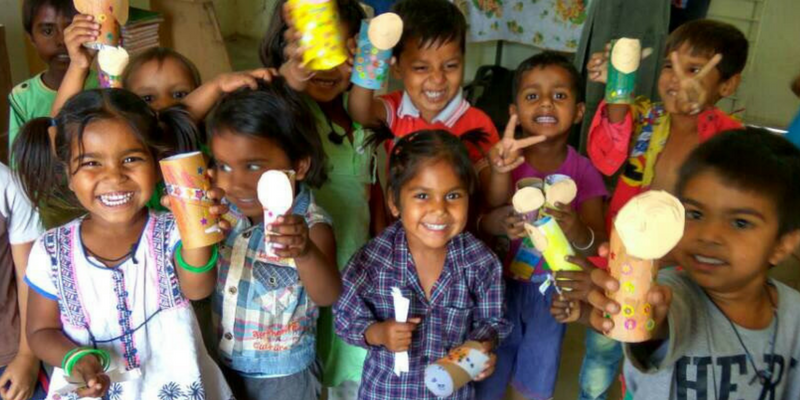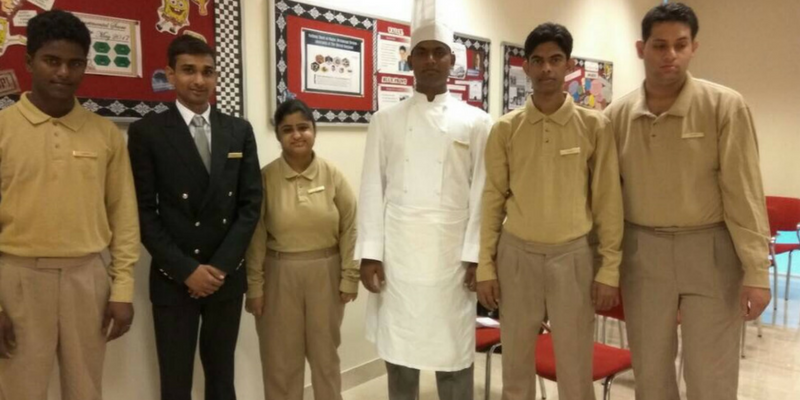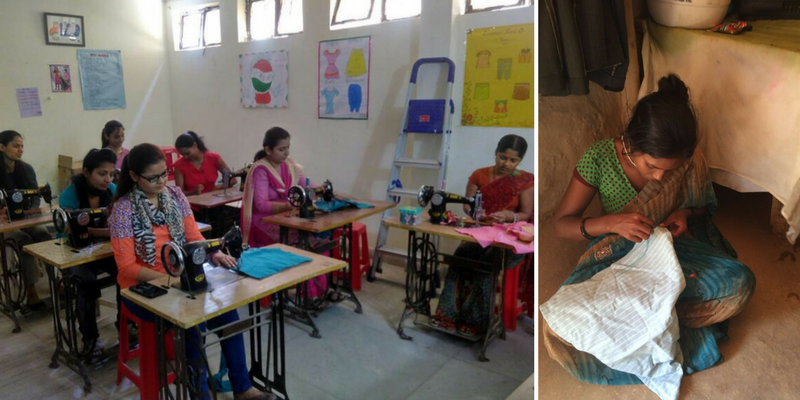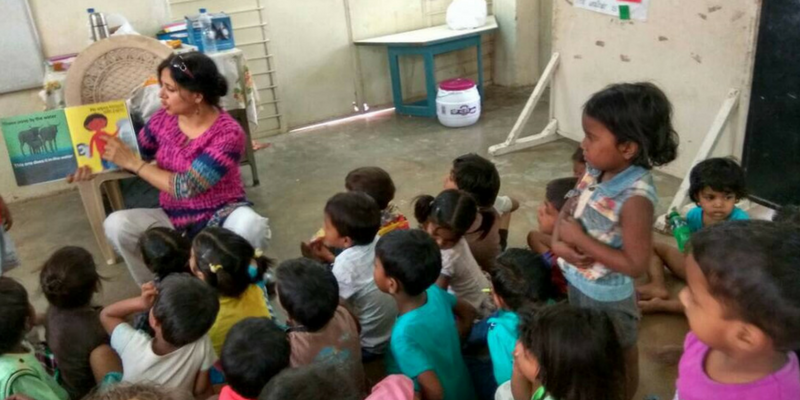Since 1995, Ritinjali has been providing education to marginalised communities to nurture the youth into responsible, sensitive citizens.
Students at the learning centre
More often than not, it is children who are already disadvantaged due to poverty, alleged involvement in crime, physical and mental disability, and gendered and sexual discrimination, who are thrown into perpetuating cycles of wrong and social evils from which an escape route is elusive.
Ritinjali works with these children and young adults, providing education through art, culture, and encouragement. The vision is to break the vicious cycle of poverty and crime so that the youth can actively contribute to their communities.
Second Chance School
What makes a man? What does ‘masculinity’ mean? Is it an empowered construct, or is it, like ‘womanhood’, one of pressure and subjugation? Can any dictated social role coexist with true freedom of spirit?
Ritinjali’s Second Chance School explores all this and more. It is an all-expense-paid, two-year programme for urban, disadvantaged boys aged between 18 and 24 who did not get a real chance at school. It provides vocational training, life skills, job apprenticeships, and schooling through National Institute of Open Schooling.
During the first year — called the work- and life- readiness programme — the boys are given theoretical training on a variety of topics and also acquire hands-on knowledge through six months of internships at reputed firms. In the evenings, English and computer classes, discussions, and life skills are explored with rigour for further development of the students. Theatre, field trips, and sports are used to eliminate biases and to expose these boys to a world beyond their own.
Each batch in each of the two Second Chance Schools —in Jhalwar, Rajasthan and Mahipalpur, New Delhi — has 30 boys. Of the first batch that started in Jhalwar in 2016, 22 young men are currently completing their internships and eight have begun working full-time. The second year of the programme is dedicated to providing them with support till they find their feet.
Lending a helping hand
‘Ritinjali’ literally means ‘helping hand’ in Sanskrit. In keeping with the name, the organisation is dedicated to offering help wherever they can.
The team has set up learning centres around Delhi’s slum clusters. These prepare out-of-school children for formal education. Ritinjali’s skill development programme teaches urban youngsters to sew and also equips them with computer literacy. The hope is that these skills will help them acquire employment and offer their societies better livelihoods.
The programme works on developing self-esteem and self-awareness of its students. As part of it, two cutting, tailoring, and dressmaking centres in Kusumpur Pahari and one in Mahipalpur together benefit 80 women, and one computer applications centre supports 50 young adults. Students earn an average of Rs 8,000–14,000 per month after completing their courses.
The one-year programme for early childhood care and education in Mahipalpur has 20 regular students, all of whom are young women with basic school education. The vision of the programme is to generate employability. Women explore career opportunities in daycare centres and primary schools upon completion of the course.
Empowering communities
Ritinjali’s community empowerment endeavours emerged out of observing the needs of the socially marginalised and functionally illiterate young women of Kusumpur Pahari and Nathupur Pahari, Delhi-NCR.
The programme provides income generation, health education, basic literacy, and civic education. Products made by young women and girls are sold at fairs, the proceeds being returned to them to compensate for the cost of production.
Sessions are conducted on sexual and reproductive health, numeric and basic literacy, and hygiene. Ritinjali facilitates free counselling on abuse, domestic violence, and legal aid to these women.
Theatre is Ritinjali’s mode of encouraging young women to speak their stories and nurturing their voices. Topics such as gender stereotypes, poor female literacy, and female infanticide have been explored. The organisation believes that performances create space for dialogue in societies.
So far, this Delhi-based team has brought 1,200 students into the formal education system, provided employment to 250 deprived, urban adults, and enabled more than 600 young women through vocational skills and income-generation activities. It raises most of its funds through CSR and an annual fundraiser.
Article Source: YourStory




